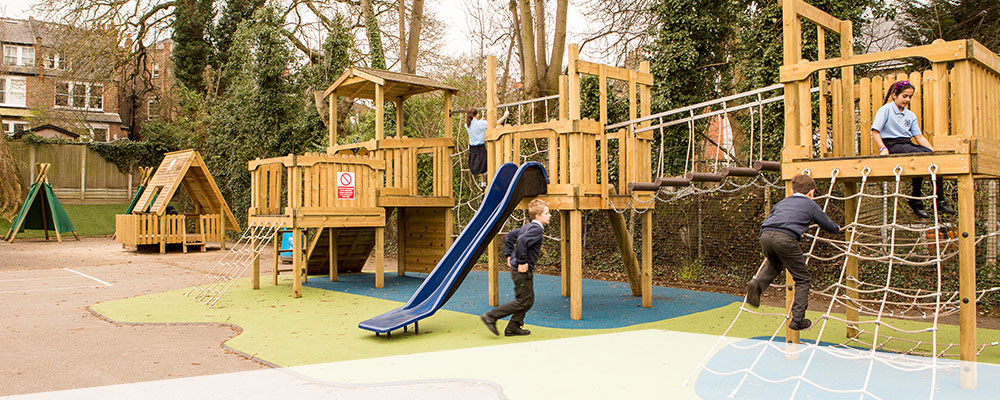
Is bullying a result of bored children? Could a play area be the answer? The schools we work with at Playforce seem to think so. In our most recent Impact Evidence survey of our customers, whilst only 30% had the objective of improving positive interactions between pupils, 85% actually found that behaviour improved and 75% noticed better inclusion following the installation of their new play area.
By inviting children to spend time relaxing, learning and interacting in a welcoming and inclusive space, they can develop friendships, a respect for others, as well as social and emotional well-being. So, we’ve got a few suggestions on how play areas can help improve behaviour and reduce bullying in your school.
1. Research: As a first step, find out what the most frequent causes of trouble are, and establish whether they occur at any particular times of the day. Also find out what the children enjoy at school and play time, and what can be developed further to make the space more stimulating for them.
2. Use activities: Research by the UK Charity ‘Learning Through Landscapes’ suggests that bullying can be the result of boredom during play times. To reduce the boredom factor, ensure that your play area has a number of different zones that provide areas of interest for every child. Zoning promotes inclusion, particularly in friendship corners, whilst the space allows the children to let off steam, increasing their focus in the classroom.
3. Communication and team work: Positive and inclusive communication is a great way of reducing bullying levels - gardens are becoming a growing focus in schools to encourage children to work and play together. Play equipment can also promote team work, for example musical panels and staging encourage children to collaborate whilst creating tunes and performances.
4. Involve every child: It is important that the children are involved in the play area development process as they will feel an increased sense of ownership. Why not get the children to develop their own playground code of conduct – they are more likely to abide by their own rules!
Bullying isn’t a new problem for schools, but we may have a different approach to tackling it. By using carefully considered outdoor spaces, we know that the impact can be extremely positive. The play area development will encourage the children to establish a health and appropriate interaction with peers – skills essential to their educational careers and later life.